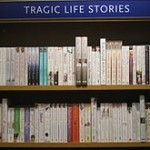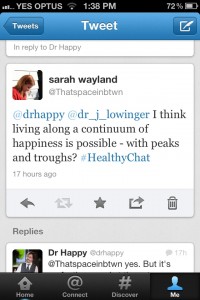This week is all about the story. I was reading with my girl in bed last night, about some re-worked fairytale classics where the goal was for us to work out the story behind the story. The one she chose focused on a little boy called Hyacinth who had a big nose and everyone around him stretched their nose to compensate for his social anxiety. After a lifetime of being surrounded by pinnochios he met a girl who had a small nose, fell in love with her, and they lived happily ever after. I pointed out to my daughter that I loved her step-dad not because of his big nose but because he was a good person. She pointed out that she loved her bestie even though she was ‘heaps taller than her’.
Its coming up to a year since I started my little blog. There are a couple of thousand visits a month from corners across the globe but the thing that brings them back time and time again are the stories. Not necessarily the ones about me but about the people I come in to contact with and they bravely say yes to be interviewed. Having people share their pieces of the world with me has pushed me out to other areas where I’ve taken the leap to write about them and then pitch those stories to print media. I still get surprised when my perspectives on what spaces we might like to read about are embraced by editors.
Someone from a writers centre asked me a few months back about the art of asking the difficult questions. I explained to her:
From a freelancing perspective the stories of trauma and resilience are always going to be interesting. People have an innate curiosity about how people survive disasters or significant losses.
My biggest tip is to be truthful. One of the biggest challenges clients have shared with me, in a counseling space, is the uncomfortableness people radiate when they try to acknowledge that something awful has happened. They talk around the issue; they talk about ‘a loss’ rather than naming the person who was killed or missing. People have survived the unimaginable, it’s OK to name it.
When I find a person who I think suits the story I’m writing the first thing I think about is how I’ll introduce myself. I point out, to prospective case studies, what other stories I’ve done to demonstrate how I have dealt with the topic sensitively. I explain why I think it will be useful for them to share their story and I invite them to clarify points with me.
I also try not to fall back on well-worn clichés…I don’t say ‘wow’ or ‘that must have been hard’ I let them tell me what it was like. I empathize but I don’t sympathize.
I also provide a chance for people to pull out at the last minute – which can be frustrating for the writer but if its isn’t the right time to talk to someone the story is not going to be as powerful.
I guess the short answer is don’t presume that you understand the experience; everyone has a different take on how they have survived.
Looking back on these words brings me to the point where I am now, where the lovely Kristen from Wanderlust has shared my blog on her storytelling directory, so that people in times of grief and loss can find the stories that have been shared. Its also brought me to people like Seema from This Place is Yours whose whole project is about the art of the storytelling – my story about Lori and Lisa, led her to me.
Storytelling doesnt always need a happy ending like the ones that my daughter reads. I dont persuade her to read things other than ‘and so they lived happily ever after’. She’s 6, its OK to think that at her age. During a twitter chat about Happiness last night people raised their concern that we shouldn’t expect happiness all the time. My contribution was this…the ups and downs are just as much part of the space in between.
Whats your take on storytelling?


Leave a Reply